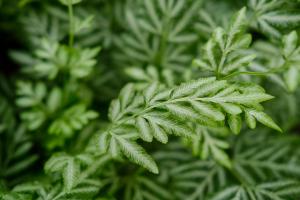Can Water Plants Absorb Dirty Water?
Water plants are known for their ability to clean and purify water naturally. They are often used in treating wastewater and removing pollutants from aquatic ecosystems. However, can water plants absorb dirty water? The answer is yes!
How Do Water Plants Absorb Dirty Water?
Water plants have several mechanisms for absorbing nutrients and other substances from water, including the process of phytoremediation. Phytoremediation is the use of plants to remove pollutants from soil or water. When water plants are grown in polluted water, they can take up and store pollutants such as heavy metals, pesticides, and organic compounds.
Water plants can also absorb excess nutrients such as nitrogen and phosphorous, which are often the cause of eutrophication (the excessive growth of algae and other aquatic plants). By absorbing these nutrients, water plants can help prevent eutrophication and improve water quality.
Which Water Plants Can Absorb Dirty Water?
Many water plants are known for their ability to absorb pollutants and purify water. These plants are often referred to as "biofilters" or "phytoremediators." Some common water plants used for phytoremediation include:
Duckweed
Water hyacinth
Water lettuce
Reed
Cattail
Phragmites
Sago pondweed
Water milfoil
Water lily
These plants have been extensively studied for their ability to absorb pollutants and improve water quality. For example, studies have shown that water hyacinth can remove up to 97% of arsenic and up to 99% of lead from water. Duckweed has been shown to absorb excess nitrogen and phosphorus, as well as heavy metals such as copper and zinc.
What Are the Benefits of Using Water Plants for Phytoremediation?
There are several benefits to using water plants for phytoremediation:
Natural: Phytoremediation is a natural and environmentally friendly way to treat polluted water.
Cost-effective: Water plants are relatively low-cost and easy to maintain, making them a cost-effective alternative to traditional wastewater treatment methods.
Improves water quality: Phytoremediation can improve water quality, prevent eutrophication, and restore aquatic ecosystems.
Safe: Water plants used for phytoremediation are safe and non-toxic, making them suitable for use in urban and residential areas.
Conclusion
Water plants are effective biofilters that can absorb pollutants and improve water quality. By using plants for phytoremediation, we can reduce the reliance on traditional wastewater treatment methods and restore aquatic ecosystems. Water plants offer a natural, cost-effective, and safe alternative to traditional pollution control methods.

 how many times do yo...
how many times do yo... how many planted tre...
how many planted tre... how many pine trees ...
how many pine trees ... how many pecan trees...
how many pecan trees... how many plants comp...
how many plants comp... how many plants can ...
how many plants can ... how many plants and ...
how many plants and ... how many pepper plan...
how many pepper plan...
































